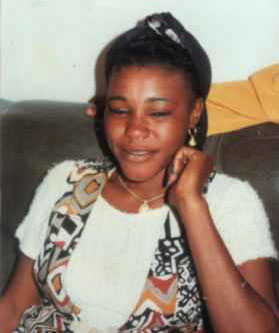
Rabi Ismaila, a Nollywood actress based in Kano and sentenced to death in 2005 for the 2002 killing of her boyfriend, has a chance to regain her freedom if her appeal at the Supreme Court succeeds, even as stories of her exploits spread in Kano
On 8 July, the Supreme Court will determine whether Rabi Ismaila, a Kannywood actress accused of killing her boyfriend, Auwalu Ibrahim, would be set free after nine years in prison custody. When the case came up for hearing on 12 May, her lawyer, Tawo E. Tawo, urged the court to set his client free, noting that, “the trial court relied on oral confessional statement to give its judgment. I urge the apex court to allow the appeal and set aside the decision of the lower court, discharge and acquit the appellant.” But the Kano State Attorney-General, Alhaji Aliyu Umar, and the state Director of Public Prosecutions, Shuaibu Sule, argued strongly that the witnesses gave a strict account of what happened at Tiga Dam on 25 December 2002: that Rabi laced a chocolate sweet with poisonous substance and offered it to Auwalu, who became unconscious and eventually lost his life by drowning.
The actress, in 2002 was arraigned before a Kano High Court for culpable homicide contrary to Section 221(b) of the Penal Code. The case dragged on till 5 January 2005, when Justice Haliru Mohammed Abdullahi found her guilty of the charge. She was convicted of killing Ibrahim by luring him to a picnic at Tiga Dam, where she poisoned him with chocolate and drowned him. While passing the judgment, Justice Haliru said the court was convinced beyond reasonable doubt that Rabi, a Hausa film actress, committed the act.
Quoting Rabi’s confessional statement, the judge noted that before pushing Auwalu into the dam, Rabi had removed the sum of N10,000.00 from his pocket. “Circumstantial evidence before the court also adduced that the convict was guilty…” the judge stated, while averring that all evidence in possession of the court pointed convincingly to the fact that Rabi committed the offence, on which basis she was sentenced to death. Justice Haliru noted that the evidence of each of the nine witnesses that testified in the court corroborated the others.
At that time, the actress was quoted as saying that she was not perturbed at the verdict and she refused the advice of her lawyer to appeal the judgment; neither did she show any sign of remorse after the death sentence. According to those close to her, she even remonstrated against her younger sister who was crying profusely at the court premises over the death sentence. “I am ashamed of you. What is it after all? With or without the sentence, death is an inevitable end for all human beings. Don’t cry for me because everyone will die one day,” Rabi reportedly said. Even moves by her colleagues to plead on her behalf for state pardon were not encouraged by Rabi. She was said to have insisted that she was conscious of the crime she committed and was ready to pay for it.
About a year after the judgment, several rumours sprouted about the Rabi saga. While some people said she had escaped from Kano prison, others said she had been killed in Kaduna by hanging. Yet others said she had been transferred to a prison in the southern part of the country. Not many people, however, knew that Rabi’s lawyer had convinced her to appeal the High Court judgment. That she did, but the Appeal Court sitting in Kaduna and presided over by Justice Alkali Ba’aba, in 2008 upheld the High Court judgment that sentenced Rabi to death by hanging. It is now left for the Supreme Court to determine whether Rabi will face the hangman’s noose.
In Kano, the story of Rabi is alive. When she reigned, Rabi Ismaila, popularly called Rabi Cecilia by her fans, was said to be haughty and ruthless. A well-known figure at the notorious Abedi Street of Sabon Gari, Kano, where she lived as a prostitute––it is said that she adopted the name Cecilia in a brothel where she hawked sex––the 38-year-old single mother of two courted controversy in almost every aspect of her life. She was widely believed to have acquired spiritual powers and people were cautious about saying bad things about her.
Though she had countless male lovers, Rabi was bisexual. She was said to be so jealous that she seriously dealt with any of her female lovers she found with men. “Rabi is a no-nonsense person. She was so influential, even in the political circle. She had a lot of money to throw about and controlled a chain of business concerns, particularly in the transport sector. The Yandaba (Area boys) were so loyal to her and were always ready to deal ruthlessly with anyone she had an axe to grind with. Rabi was known to control the men around her, and nobody told her what to do. She can aptly be referred to as an actress, mother, prostitute and murderer. Yes, she killed a young man and she owned up to it,” another source told the magazine.
A restless lady, Rabi was known for her truancy when she was active in movies. Though she wielded great influence in the Hausa film industry, she evaded registration and ignored several threats of expulsion by the leadership of movie practitioners, known in Kano as Kannywood, which tried in vain to get her officially registered. She was said to habitually quarrel with other cast members, even on location. Little wonder, therefore, when the news reached her colleagues that she had murdered her boyfriend, none of them expressed surprise, because they knew what she could do. Though nobody in the industry could tell exactly how many films she featured in, an actress who claimed to know much about her told this magazine: “It (her films) ranges between three and five. Rabi Cecilia played lead roles in three of them, namely, Aya (meaning, Divine Understanding), Tsumaigya (Something Like Hunger) and a third flick, a comedy where she played the role of an old woman.”
We learnt that Rabi was given her first role by one Sani Rasheed, a producer, way back in 1994, after she was introduced to him by another colleague in the industry, Sani Musa Danja, popularly known as Sani Danger. An actress who starred alongside Rabi in her first two films revealed that most of her female colleagues avoided her like because of her queer habits. In fact, she disclosed, Rabi was often in the midst of motorcycle riders––popularly called Yan Achaba––and miscreants.
A source also told this magazine that Rabi is a product of a broken home. While her father lives in Yola, Adamawa State, her mother stays in Tundun Wada, Kano, where the actress was born. Rabi has also been divorced twice. Those who know her said her relationship with the late Auwalu was tempestuous, as they often engaged in brawls, even in public places, though there were rumours that they had planned to settle down before the Tiga Dam incident.



















